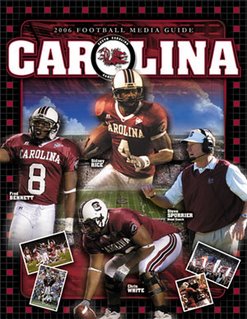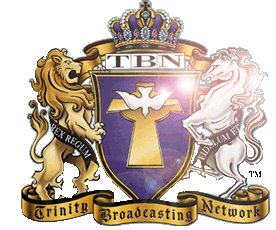
It occurs to me that I have been remiss in my blogging duties. I reported on
Auburn's fifth consecutive triumph over their perennial foes Alabama, but I failed to announce the victory of my own beloved
South Carolina Gamecocks over their detested arch rivals, the Clemson Tigers, by a score of 31-28. Better late than never. The title of this post is an effort to reproduce in print a neat little auditory effect you'll hear at home games. One side of the stadium yells "GAME!" The other yells "COCKS!" The stereophonic effect has been known to discombobulate opposing teams.
It wasn't just a game, it was a cardiovascular workout, with highs and lows and plenty of heart-stopping moments for fans. Too often, the Gamecocks come out looking like college football's equivalent of the Chicago Cubs, a bunch of lovable losers that you just can't help cheering for no matter how often they break your heart. Carolina fans celebrate every victory they can get, especially over Clemson. If there's one thing I've learned in nearly 40 years of pulling for South Carolina, it's to keep your expectations low. For example, right before half time, Carolina, down 14-7, was driving on the Clemson goal. USC quarterback Blake Mitchell dropped back to pass, but a Clemson defender got in his face, deflected the ball, and ran the other way for a Clemson touchdown. I thought we were doomed.
At one point in the third quarter Carolina trailed 28-14. Again, I thought we were doomed, but miracle of miracles, the Gamecocks rallied, using stiff defense and taking advantage of Clemson turnovers to actually go ahead 31-28 late in the game. Clemson, of course, promptly got the ball and drove down the field, lining up for a field goal that would have tied the game and sent it into overtime, where in all likelihood Clemson would win. Would Carolina's miracle slip away? I'd seen it happen before.
On the last play of the game, Clemson lined up for a field goal . . . and missed! Carolina beat Clemson! Could life get any sweeter? As a result of this titanic victory, the Gamecocks will now have the opportunity to play in the Totally Meaningless Media Event & Marketing Opportunity Bowl, or some such. Not so many years ago, there were only a few major college bowl games--Rose, Cotton, Sugar, Orange--and each one had a share in determining college football's national championship. In short, they meant something. Now, however, there are so many of these postseason extravaganzas that just about any team that wins more than half its games can go to one of these artificial hoopty-dos. Oh, well. We'll take it.
As an interesting side note, Auburn, whom I love for Dad's sake, and Clemson, whom I detest . . . well, just because they're Clemson :)--have many similarities. Both are the land grant colleges and agricultural and mechanical schools for their respective states. Both claim the Tigers as their mascots (
I think Auburn's battle cry of "War Eagle!" originated during World War II when the school was used as a training facility for combat pilots [
UPDATE, 2009: Since this was originally posted, I have learned that there are many possible explanations for the origin of the phrase "War Eagle!" none of which can be verified].
Both schools use orange as one of their team colors. (Auburn uses orange and blue, Clemson, orange and white). But you see, because my Dad went to Auburn, Auburn Tigers are fine, hardworking, upstanding, God-fearing sons and daughters of the soil who labor diligently by the sweat of their brows to make the world a better place. Because nearly everybody else in my family went to Carolina (one of my sisters pulls for Clemson just to be contrary, but we love her anyway), Clemson Tigers are backward, ignorant, uncouth, unlettered rednecks and the source of all evil in the world :-). (JUST KIDDING!) :-)
In conclusion, I'd like to recall the words of our late beloved Pope John Paul II when he visited the USC campus several years ago. The Holy Father was addressing a group of students on the Horseshoe, the historic heart of the campus, when he departed from his prepared text and said:
"It is wonderful to be young."
(This was greeted with a scattering of applause).
"It is wonderful to be young and a student at a university."
(More applause)
"It is wonderful to be young and a student at the University of South Carolina."
(THUNDEROUS APPLAUSE).
I've always figured this was a dignified way for the Servant of the Servants of God, the Vicar of Christ, the Successor of Peter, the Supreme Pontiff of the Universal Church to say:
GO COCKS!





